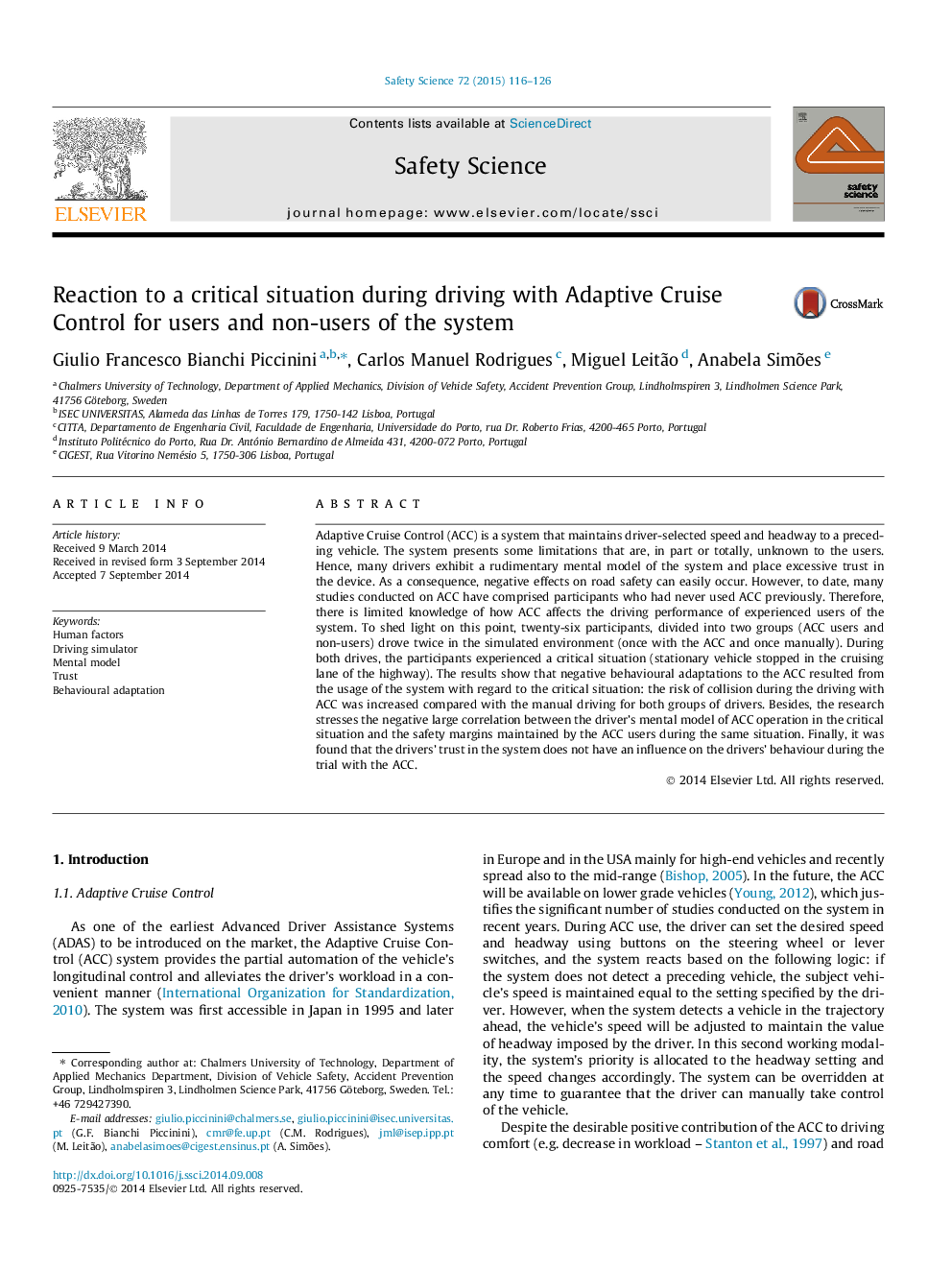| کد مقاله | کد نشریه | سال انتشار | مقاله انگلیسی | نسخه تمام متن |
|---|---|---|---|---|
| 589054 | 1453399 | 2015 | 11 صفحه PDF | دانلود رایگان |
عنوان انگلیسی مقاله ISI
Reaction to a critical situation during driving with Adaptive Cruise Control for users and non-users of the system
دانلود مقاله + سفارش ترجمه
دانلود مقاله ISI انگلیسی
رایگان برای ایرانیان
کلمات کلیدی
موضوعات مرتبط
مهندسی و علوم پایه
مهندسی شیمی
بهداشت و امنیت شیمی
پیش نمایش صفحه اول مقاله

چکیده انگلیسی
Adaptive Cruise Control (ACC) is a system that maintains driver-selected speed and headway to a preceding vehicle. The system presents some limitations that are, in part or totally, unknown to the users. Hence, many drivers exhibit a rudimentary mental model of the system and place excessive trust in the device. As a consequence, negative effects on road safety can easily occur. However, to date, many studies conducted on ACC have comprised participants who had never used ACC previously. Therefore, there is limited knowledge of how ACC affects the driving performance of experienced users of the system. To shed light on this point, twenty-six participants, divided into two groups (ACC users and non-users) drove twice in the simulated environment (once with the ACC and once manually). During both drives, the participants experienced a critical situation (stationary vehicle stopped in the cruising lane of the highway). The results show that negative behavioural adaptations to the ACC resulted from the usage of the system with regard to the critical situation: the risk of collision during the driving with ACC was increased compared with the manual driving for both groups of drivers. Besides, the research stresses the negative large correlation between the driver's mental model of ACC operation in the critical situation and the safety margins maintained by the ACC users during the same situation. Finally, it was found that the drivers' trust in the system does not have an influence on the drivers' behaviour during the trial with the ACC.
ناشر
Database: Elsevier - ScienceDirect (ساینس دایرکت)
Journal: Safety Science - Volume 72, February 2015, Pages 116-126
Journal: Safety Science - Volume 72, February 2015, Pages 116-126
نویسندگان
Giulio Francesco Bianchi Piccinini, Carlos Manuel Rodrigues, Miguel Leitão, Anabela Simões,